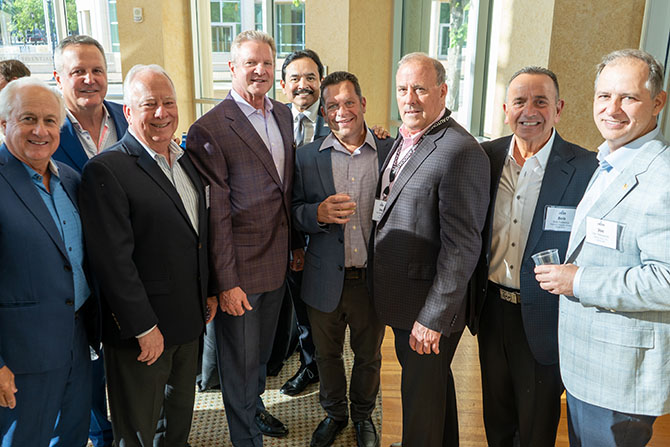IADA ensures automakers properly fund warranty repair services provided by trained, experienced technicians at auto dealerships. Below is an Op-Ed that IADA recently provided to the Chicago Tribune addressing their editorial on May 27.
We welcomed the recent court ruling upholding the stronger consumer protections that Illinois lawmakers enacted to require automakers to properly fund warranty repair services provided by trained, experienced technicians at auto dealerships.
We strongly disagree, however, that these protections are costing consumers money, as the Tribune presented in its editorial on May 27, 2024. In fact, evidence shows the opposite, and the benefits are clear, according to a recent study.
Before this law, automakers were significantly underestimating repair times and paying less than fair-market wages for certified technicians completing important warranty repairs and factory mistakes.
These limitations, enforced by manufacturers enjoying record profits and looking to reduce their costs from warranty programs that provide owners with important safety corrections, previously impacted technicians’ ability to correctly diagnose problems or ensure the quality of their repairs.
Now, vehicles with design flaws and manufacturing defects are updated by technicians afforded the time to do the job correctly and safely.
A recent study documents the positive impacts of the law for both drivers and mechanics.
The Illinois Economic Policy Institute and Project for Middle Class Renewal at the University of Illinois Policy Study evaluated the law and its effects and concluded the positive economic impacts of HB 2940 have occurred at no cost to Illinois’ car owners, taxpayers and new vehicle dealers.
This is good news for drivers whose vehicles may need to undergo updates covered by their new car warranties. Vehicle owners benefit from experienced professionals taking the necessary time to diagnose issues and correct engineering and production errors, resulting in fewer disruptions to their lives or multiple visits for service. And the peace of mind knowing their car or truck has been serviced correctly.
As cars become more technologically advanced, adopt improved safety features and are engineered to increase efficiency, it is paramount that the trained technicians who repair these vehicles are respected and compensated for their expertise.
Under this law, workers are benefiting financially. According to the study, Illinois vehicle dealership workers’ earnings have increased by $143 million annually, helping to solidify auto mechanics as a career opportunity in an industry that has been losing workers and facing challenges in hiring new technicians. The study also found that there was already a 9% reduction in employee turnover.
While it is important for any industry to attract the next generation of workers, this law also ensures that current technicians no longer suffer under unrealistic deadlines and corporate pressures for bigger profit margins for auto manufacturers.
The increased earnings have an impact across our state and in our communities. Our technicians are also your family members, friends and neighbors who have more spending power to support local businesses, save for retirement and begin college funds.
In addition, Illinois auto dealers contributed almost $45.9 million in charitable causes in 2023, helping to support needed programs and non-profit organizations in communities across the state.
“The data shows that this bipartisan law fixed a manufacturers’ defect and delivered wins for local businesses, skilled mechanics and taxpayers,” concluded University of Illinois Professor, PMCR director, and study coauthor Robert Bruno, Ph.D. “Its effectiveness should encourage the state of Illinois to strengthen educational and enforcement efforts and other states to consider enacting their own warranty parity policies.”
Other states are considering their options, as Illinois is not the only state choosing to place drivers and mechanics above corporate profits. At least four other states have enacted similar warranty parity laws. California, Wisconsin and Montana had laws prior to 2023, while Minnesota became the newest state with a policy in October 2023. Other states, like Colorado and deeply conservative Texas, have also introduced bills to end the two-tiered compensation system in automotive repairs.
The economic impacts are clear. According to a study conducted by Auto Outlook, an independent automotive marketing firm, franchise car dealerships are responsible for 15.3% of Illinois retail employment. That translates to 87,800 jobs for state residents directly or indirectly employed by the new car industry. The same study reports that in 2023, new franchised automobile dealerships in Illinois collected or paid $3.37 billion in state and local taxes, an average of $4.81 million per dealership.
Franchise auto dealers have long provided the reassurance of reliable, accountable service to protect the safety of the driving public. Our dealerships are making large-scale investments to prepare for more sales and service of electric vehicles, which will require more training and expert professionals as more of these vehicles hit the roads.
The car-buying experience is continuously transforming, providing significant new opportunities for consumers, but one constant remains: Cars will need maintenance and repairs, even brand-new ones. It is nice to know that in Illinois, we are focused on the well-being of consumers and workers who provide that important service rather than on corporate automakers’ bottom lines.









